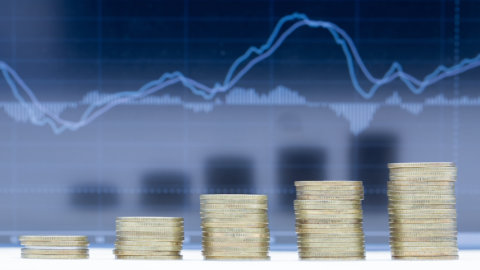BANKS HOLDING BACK THE RECOVERY OF PRICE LISTS
REBOUND TESTS FOR FIAT IN MILAN
The Milan Stock Exchange slows down the race in the first half of the morning, when the indices had risen to gain more than 2%: weighed down by the negative passage of the banking sector, the Ftse Mib, at 12, marked a more modest +15, 0,21% to 14.821 points and the All Share +0,31%. The trend reversal in the credit sector, at the European level, can be partly explained by today's summit between the finance ministers in Paris and Berlin in which the terms of taxes on financial transactions will be defined. A separate case concerns Bpm (-3,62%), in a sharp and accelerated fall after the long run-up awaiting Thursday's half-yearly report and the decisions on the capital increase: the guarantee consortium is pressing for a postponement of the requested operation by the Bank of Italy. Fiat rebounds (+4%), Unicredit tries (-0,3%). Trouble with the Brazilian tax authorities stops the run of Telecom Italia (-1,3%). Campari stock made a big splash after JP Morgan's upgrade +3,7%, confirming itself as one of the most robust counter-cyclical values. Not even the sudden increase in skepticism about the economic prospects, witnessed by the drop to its lowest since the end of 2008 recorded by the German Zew, has compromised the rally of the markets and of the euro. After an initial negative reaction to the exit of the Zew, the European equity indices continued on their positive path with the Frankfurt Dax rising by 1,73%, the Cac 40 by 1,62%. Among currencies, the upward movement of the euro continues at 1,4485 dollars, not far from the 3-week highs. Of note, among the Old Continent's price lists, is the money on Ubs (+2,47%) in Zurich which announced personnel cuts for 3500 units. The reduction in the workforce should allow annual savings of approximately 2,5 billion Swiss francs.
GERMANY SEES BLACK IN THE NEAR FUTURE
THE ZEW INDEX HAS DROPPED TO A 3-YEAR LOW
The German Zew index on economic expectations in August stood at -37,6 points from -15,1 recorded the previous month. The consensus was for a less marked drop to -26 points. This is the lowest since December 2008 when the German economy was in full recession. The Teutonic research institute remarked that skepticism about the economic prospects for the euro area has greatly increased with the growth of the German GDP in the second quarter which greatly disappointed expectations. The German economy recorded a sharp slowdown in the second quarter, recording a limited progress of 0,1% on a quarterly basis compared to +1,3% in the first quarter. Yesterday the German Finance Minister, Wolfgan Schaeuble, said in a radio interview that there is no risk of recession for Germany and estimates remain of an increase of 3% of GDP this year despite the sharp economic slowdown recorded in the second quarter. In the meantime, Berlin yesterday announced new debt containment objectives. The balanced budget should arrive a year early. The monthly report from the Ministry of Finance highlights how the deficit/GDP ratio is now seen to fall to 1,5% this year from 3,3% in 2010 with a balanced budget in 2014. Previous estimates were instead of a deficit below 2,5% this year and breakeven only in 2015. At the end of the year, German public debt should drop by 3% to 80%.
GLOBAL FINANCE: GREAT ESCAPE FROM FUNDS OF ALL KINDS IN AUGUST
IT HAD ALREADY HAPPENED ON THE EVE OF THE LEHMAN BROTHERS CRACK
There is a worrying analogy between September 2008, the month that preceded the collapse of Lehman Brothers, and August 2011: for the first time since then, globally, not only equity funds but also bond and monetary funds witnessed to a cash outflow (-16 and -18 billion dollars respectively) . The aggregate data for developed market equity funds confirms the flight of investors in August. Globally, capital outflows totaled $30 billion in the past three weeks. Emerging markets have not survived unscathed, whose equity funds saw a $12 billion reduction in invested capital in the same period.





